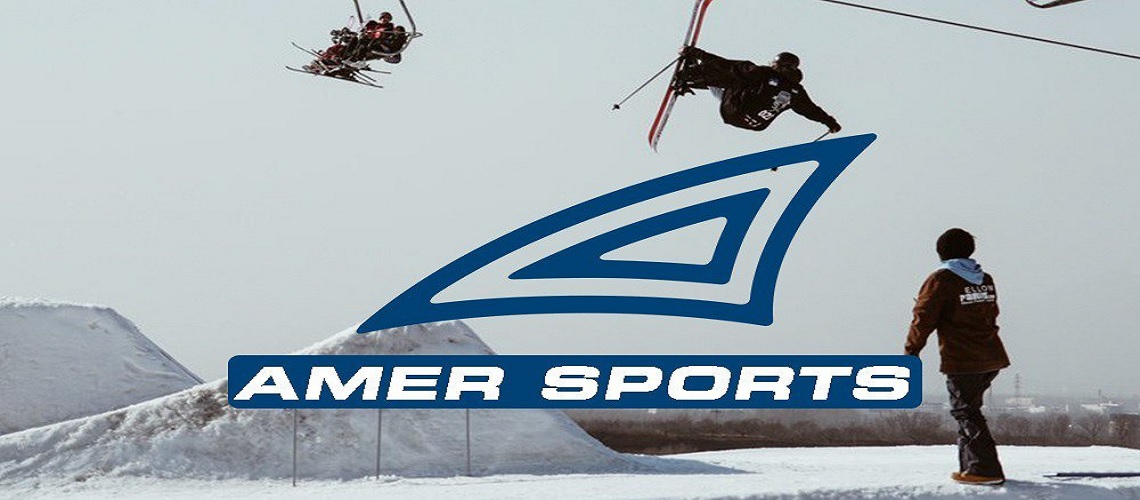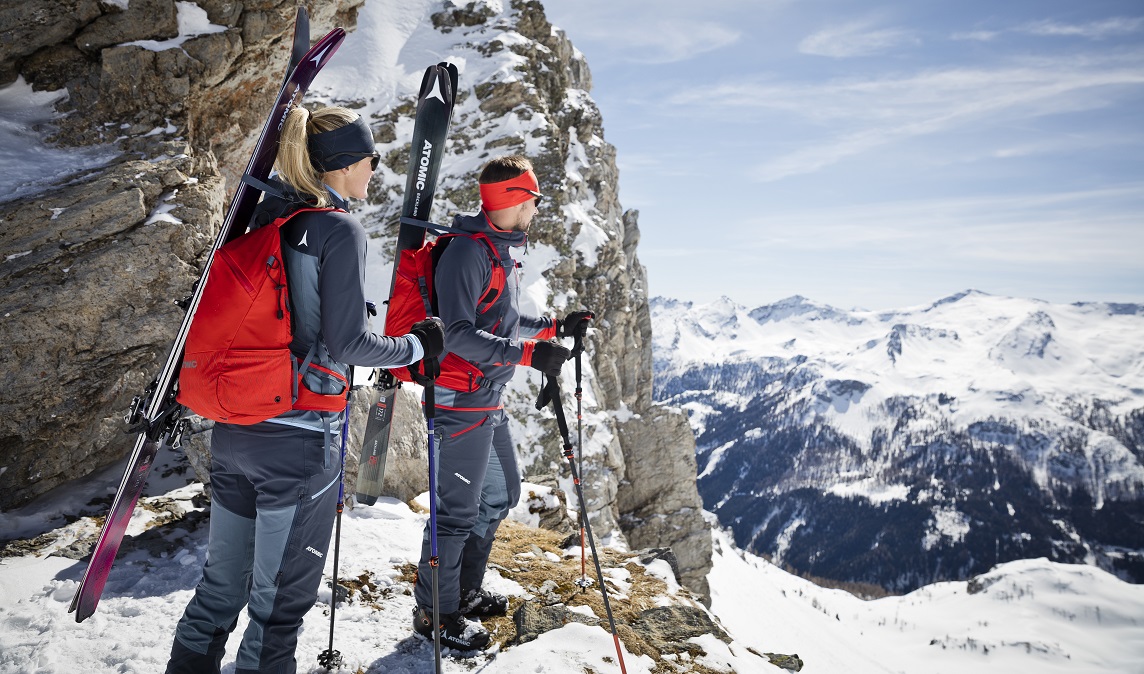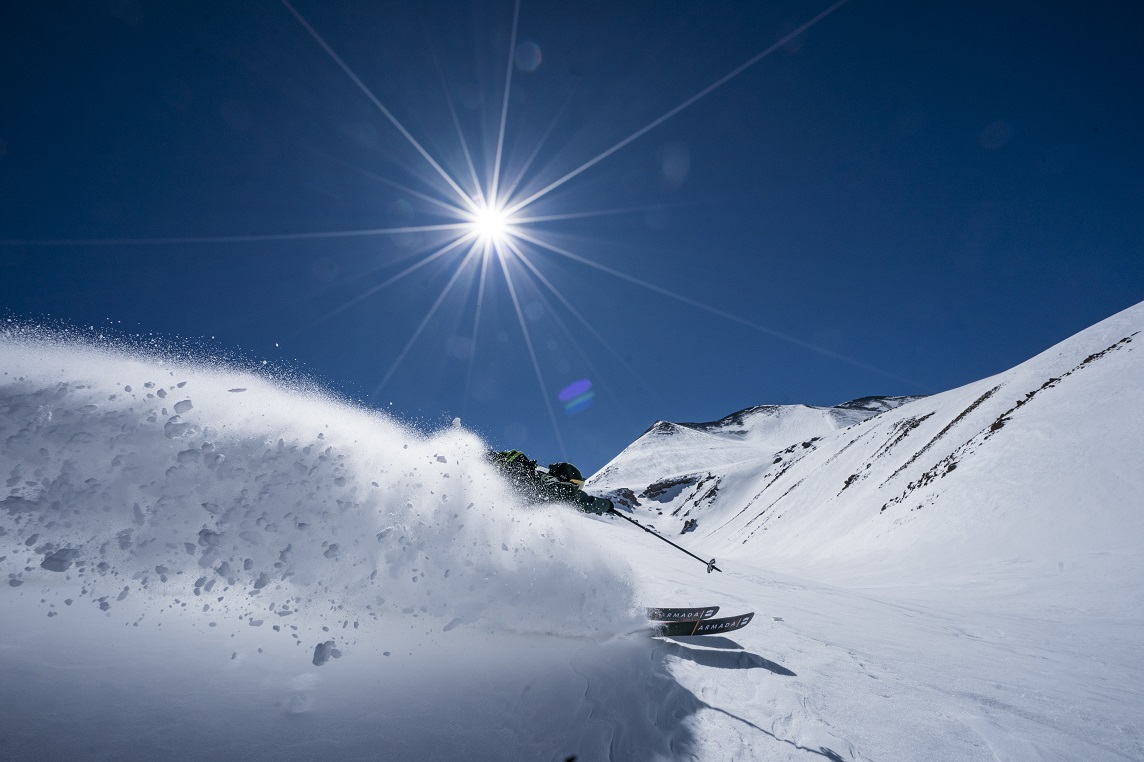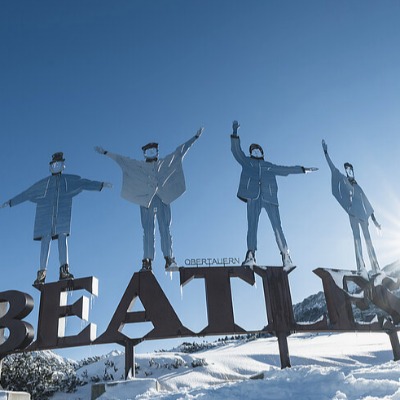Amer Sports: Sustainable Winter Sports Equipment In The Age Of Global Warming

The winter sports industry has a double challenge – to protect winters and jobs at the same time.
“Responsibility is a mindset. In every decision we make, we have to consider our environmental impact”, says Michael Schineis, President of Winter Sports Equipment at Amer Sports.
Michael Schineis has lived close to the mountains all his life. Born in Kempten, Southern Bavaria, Germany, Schineis studied in Augsburg and started his career in Munich. Twenty years ago, he began to work for Atomic and moved to Austria.

“My home is in Salzburg, and my office is in Altenmarkt. I have the mountains always in front of me”, Schineis says with a smile.
Schineis started skiing when he was three years old. After that, he has spent countless days on skis every winter, both in ski resorts and on ski tours. He has also seen the effects of climate change in mountain regions. According to his experience, winters have not changed so much.
“We have had good winters and bad winters. The snowfall may start a little bit later than they used to, but, usually, we have excellent snow conditions until March-April.”

In the summertime, the change has been more significant.
“For 40 years, I have been skiing in the glaciers. Today, they are melting down because we have really hot summers in the mountains. It might also affect the winters.”
Are you personally concerned about climate change?
“I am concerned. Everybody should be.”
Winter sports industry is vital for the mountain regions
For Schineis, global warming is also a professional concern. Skiing is extremely important for the people, the communities and the economy in Salzburgerland.
For example, Altenmarkt has 3,500 inhabitants. With 900 employees, Amer Sports Winter Sports Equipment ski factory is the biggest employer in this historical city. The surrounding ski area, Ski Amadé, is one of the largest ones in Europe and offers hundreds of jobs in the winter season.

“Without skiing, these valleys would be almost empty, and the cultural landscape would look totally different. Now the skiing industry offers people good jobs, and they don´t have to move to the big cities.”
Ecologically, Alps are also essential for whole Europe. The mountains are a significant reservoir of forests and water.
“Alps are providing almost half of Europe with fresh water. By investing in these valleys and keeping them inhabited, we can also preserve their natural function.“
People living in the mountains are committed to taking care of the Alpine nature and heritage.
“To maintain this environment and an ecological way of life is a big responsibility.”

Wise use of water and energy
The big challenge to the industry is to maintain both the winters and the jobs provided by equipment producers and ski resorts.
In ski resorts, smart energy consumption is the key. When the winters tend to get shorter, the ski resorts have to rely on artificial snow. Snowmaking requires much water and electric power. The trick is to use them as effectively as possible.
“Fortunately, we have here a flow of natural energy. The production of electricity is based on water power. Likewise, we use water to make snow. In the spring, the snow is melting into the water again. All in all, it´s a kind of circular economy.”

Millions of tourists travel to the mountains every winter, and traveling is indeed energy-consuming.
“To get rid of traveling is not possible because people living in the big cities have a deep desire to experience nature. However, it´s better to drive from Munich to the Bavarian Alps than to fly to the Dominican Republic in winter.”
To lower the emissions, new ways of transport are necessary.
“We could have high-speed trains as they have in Japan. It is a better solution than everybody sitting in their own cars.”

Goal: carbon neutrality
Most of the ski manufacturers have a strong Alpine heritage. According to Schineis, the companies operate very responsibly.
“We have not started an industry-level process against climate change, but all my colleagues work responsibly. We have our factories in the middle of the mountains and tourist areas. We can reduce our emissions as much as possible.”
To Schineis, the reduction of carbon footprint is an ongoing process.
“It´s not about one big thing. It´s more about the mindset. In every decision we make, we have to consider our environmental impact.”
Amer Sports produces a significant part of its winter sports equipment in the Altenmarkt site. In recent years, the factory has made many improvements.

“We are constantly looking for new technologies to make our products with less steam, electricity, and energy. We have invested much money in filters and water cleaning, and we have very efficient waste management. We have even found a solution to re-use our excess materials in agriculture. The goal is to be carbon-neutral.”
Previously, the Altenmarkt facility consumed almost one million liters of oil every year. Today, oil is not needed. The heating energy for both the ski factory and the town of Altenmarkt is produced by Holzwärme Altenmarkt, a jointly owned power plant using 100% biomass. The electrical energy the factory uses is also 100% renewable. The excess heat from the factory is used to heat the office buildings.

Production close to consumers
One way to reduce carbon emissions is to minimize the use of shipping and air freight as much as possible.
“60% of the global winter sports market is in Europe. We want to produce near the consumption. Being close to the markets is a big advantage. We can be very agile and adapt to market volatility.”
Amer Sports has invested significantly in keeping the production in Europe.

“We continue to automatize and robotize our factories. With the help of modern technologies, we can reduce lead times and produce even close to shipping. We are super seasonal – we have to ship 80% of our products in six weeks.”
In the coming years, the Altenmarkt factory will continue to make progress in the circular economy.
“We have to think what happens to the old products. We must motivate the consumers to recycle them to get the materials back to production. We can already separate plastic from metal parts and shred old ski boots to make new ones.”
Amer Sports also encourages skiers to swap children´s skis.
“It´s not best to our short-time business, but in the long term, it´s good for us. We motivate the kids to become skiers. It helps the sport to grow.”













